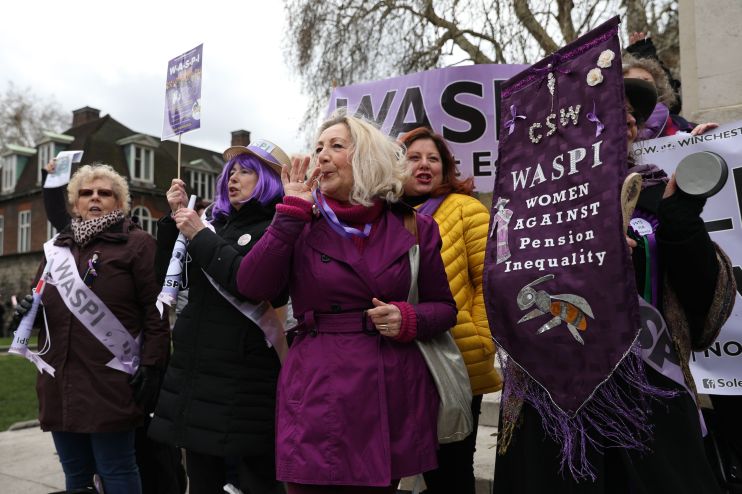Defeat for women in landmark state pension legal fight

Millions of women face the prospect of retiring later or surviving on less, after campaigners lost a significant legal battle against the government over increases to the state pension age.
Nearly 4m women born in the 1950s were hit by the government’s decision to bring the retirement age for them up from 60 to 65, in line with men.
Read more: Minister says women affected by transitional state pension arrangements should use “other benefits”
Campaigners Backto60 claim the rise is unfair because they did not have enough time to prepare for years without a state pension. But the High Court today ruled against their claims that the changes amounted to discrimination.
The case follows years of lobbying by the separate group, Women Against State Pension Inequality (Waspi).
Judges said: “There was no direct discrimination on grounds of sex, because this legislation does not treat women less favourably than men in law. Rather it equalises a historic asymmetry between men and women and thereby corrects historic direct discrimination against men.”
‘The campaign continues’
It is estimated that about 3.8m women lost as much as £40,000 because the changes hit them harder, having taken time out of work to look after children and having been paid less than men over the years.
Sir James Eadie QC, who was representing the DWP, said the government took “extensive” steps to notify women of the changes.
Labour’s shadow pensions minister Jack Dromey: “The 1950s women helped build Britain and were let down by the government’s pension changes. They will understandably be very disappointed by today’s finding.
“We will consult further with the 1950s women affected as to what future support we can put in place once in government to help ensure that all these women have security and dignity in older age.”
The Department for Work and Pensions (DWP) said:
“We welcome the High Court’s judgment. It has always been our view that the changes we made to women’s State Pension age were entirely lawful and did not discriminate on any grounds.
“The Court decided that arguments the claimants were not given adequate notice of changes to the state pension age could not be upheld.
“This follows the extensive communications that DWP made to publicise these changes over many years.
“The government decided in 1995 that it was going to make the State Pension age the same for men and women as a long-overdue move towards gender equality. Raising State Pension age in line with life expectancy changes has been the policy of successive administrations over many years.”
Former shadow work and pensions secretary Angela Rayner said: “The campaign for #WASPI continues. Us girls know our history and none of the women’s rights that have been fought and gained throughout history have ever come easy to us.”
‘A bitter blow’
Tom Selby, senior analyst at AJ Bell, comments: “This ruling will come as a bitter blow to the millions of women who had been hoping the Courts would roll back the tide on state pension age increases.
“The financial impact of having to wait up to six more years to receive the state pension is significant and for many just scraping by it has pushed them into serious financial hardship.
“While some of these stories are heart-breaking, increases in the state pension age have been a long time coming and are deemed necessary to ensure the costs borne by younger taxpayers don’t spiral out of control.
Helen Morrissey, pension specialist at Royal London, said: “Today’s judgement may well have gone in the government’s favour but there are lessons they must learn from this.
Read more: Wrong state pension forecasts sent to 360,000 savers after Whitehall blunder
“While the judges said the increases were not discriminatory and they were not in a position to conclude steps taken to inform these women were reasonable there is no question that women have experienced severe financial hardship as a result of this change.
“Government must ensure such changes are communicated more effectively in future.”